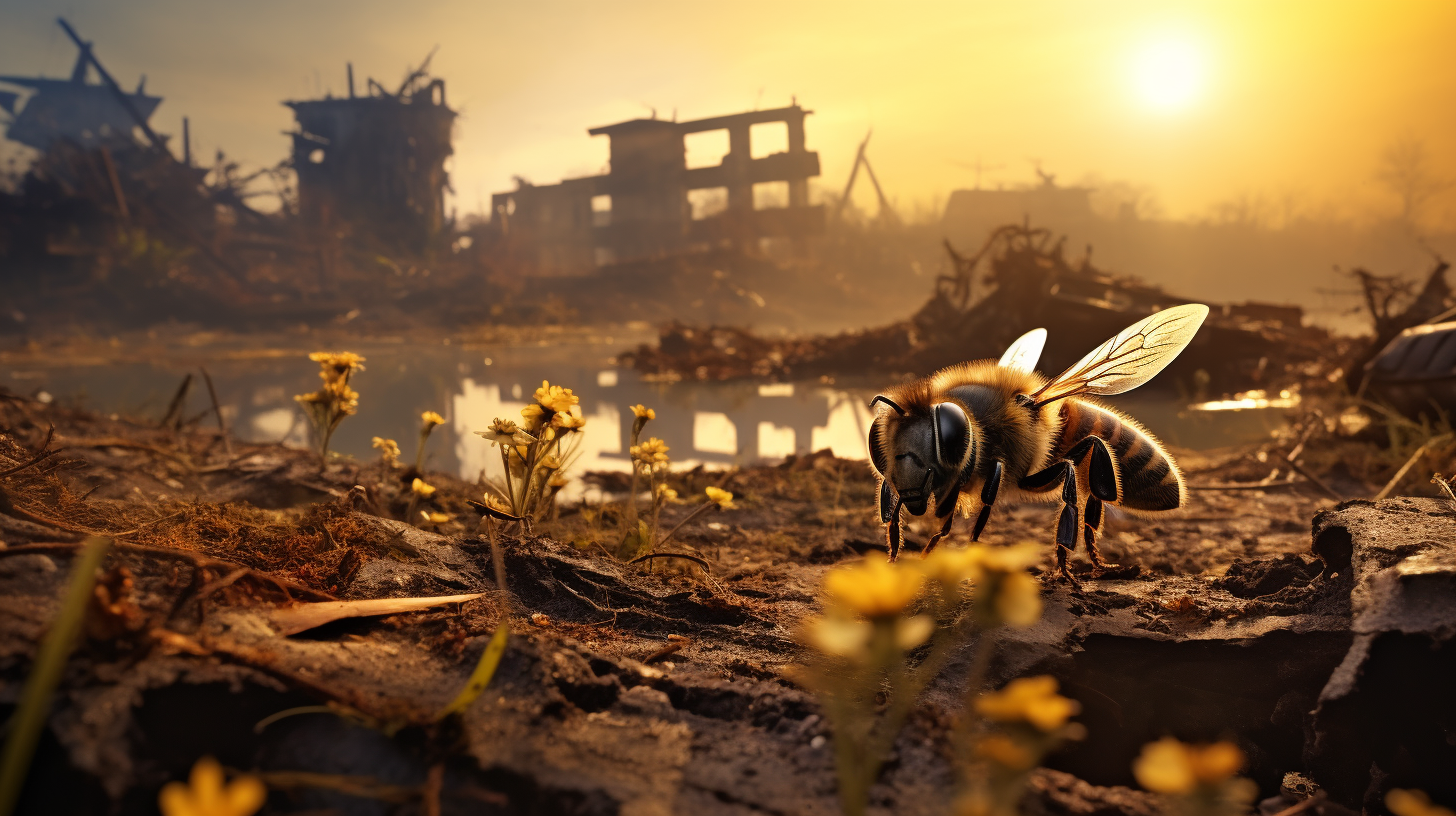The faint buzz that once heralded the prosperity of our ecosystems has now been replaced by a disquieting hush. Fields and orchards across the globe lay barren, their once bountiful yields a mere memory, a fading dream of abundance. ‘Haven No More’ delves into the cataclysmic impact of the collapse of our pollination systems, drawing a stark picture against the canvas of our past neglect.
Where bees danced, drones now buzz – a robotic substitute to nature’s delicate ballet. Initially heralded as an ingenious fix, these mechanical pollinators have proven inadequate. As we venture deeper into this eerie silence, the ramifications of our actions – or inactions – have taken full root, leaving us to reap the desolate wind.
Our narrative begins with a retrospective glance at the golden age of biodiversity, where insects thrived in symbiosis with flora. Every fruit, every seed was once a testament to this powerhouse of nature’s own making. Yet, ever so subtly, the strands of this ecosystem began to fray. Pesticides, habitat loss, and pollution have each dealt a crippling blow – with the precision of a calculated strike – ensuring the decline of our most ardent cultivators.
In semblance to the isolated reserves of ‘Arca Noctis,’ depicted as beleaguered fortresses in our previous discourse, pollinators too have faced their downfall. ‘Biodiversity’s Final Bastions’ brought to light their once-flourishing habitats, now shrunk to mere sanctuaries. Echoing this sentiment, the ‘The Final Orchard’ envisaged a world bereft of these creatures, envisioning agricultural doom echoed in the silent echo of today.
It is in the day-to-day, within the crumbling soils of our farmlands, where the loss is most acutely felt. Hand pollination – once a novel act of desperation – has become routine, an arduous and soul-crushing endeavor that hastens our decline into dystopia. Our tables, once groaning under the weight of nature’s generosity, now host an austere spread of synthetically grown sustenance, a mockery of our predecessors’ feasts.
Prevailing amidst this wreckage are those who cling to hope. Researchers toil in their laboratories, seeking to unravel the regenerative mysteries that could rekindle life in our desolate plains. Yet, it brings us to an existential query: Is revival within grasp, or are these efforts as futile as drawing water from stone?
This journey through our faltering pollination systems uncovers human resilience amidst relentless despair. Communities band together, fighting a silent war against time, attempting to foster patches of verdancy in a world that seems ever-indifferent to their struggles. They sow and they wait, their labor going against the very grain of the current narrative, a narrative that expects naught but futility.
As we stand on the brink, peering into the chasm that this ecological failure presents, one cannot help but muse upon the irony. It was once said, ‘To see a world in a grain of sand,’ yet today, that grain lies fallow, its inherent potential stripped and left unfulfilled.
With humankind’s propensity to turn to technological panaceas, we have unearthed a new conundrum. We marvel at the ability to mimic nature’s handwork with bots and yet, remains the undying question – can these inventions ever compensate for a living, breathing system fostered through millennia?
As we conclude this exposé, we leave you nestled within the dichotomy of our reality – alert to the urgency of now, yet somewhat adrift in the inertia that binds. ‘Haven No More’ is more than a tale of ecological collapse; it is a clarion call, a siren song beckoning for change, echoed in the hollowness left behind by our forgotten pollinators.
